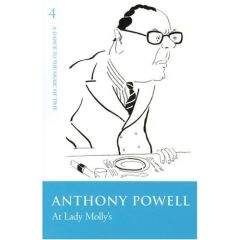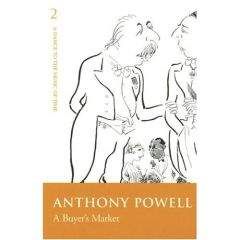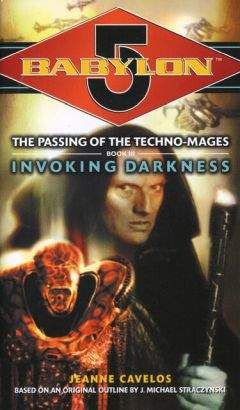Anthony Powell - At Lady Mollys
На сайте mybooks.club вы можете бесплатно читать книги онлайн без регистрации, включая Anthony Powell - At Lady Mollys. Жанр: Современная проза издательство неизвестно,. Доступна полная версия книги с кратким содержанием для предварительного ознакомления, аннотацией (предисловием), рецензиями от других читателей и их экспертным мнением.
Кроме того, на сайте mybooks.club вы найдете множество новинок, которые стоит прочитать.

Anthony Powell - At Lady Mollys краткое содержание
At Lady Mollys читать онлайн бесплатно
‘We’ve been at the Alfords’,’ said Isobel, discarding the banana skin into the waste-paper basket. ‘Throw me an orange, Susy. Susan had an adventure there.’
‘Not an adventure exactly,’ said her sister. ‘And, anyway, it’s my story, not yours, Isobel. Hardly an adventure. Unless you call getting married an adventure. I suppose some people might.’ ‘Why, have you got married, Susan?’ asked Erridge.
He showed no surprise whatever, and very little interest, at the presentation of this possibility: merely mild, on the whole benevolent, approval.
‘I haven’t yet,’ said Susan, suddenly blushing deeply. ‘But I am going to.’
She was, I think, suddenly overwhelmed at the thought of marriage and all it implied. The announcement of her engagement, planned with great dash, had not been entirely carried off with the required air of indifference. I even wondered for a moment whether she was not going to cry. However, she mastered herself immediately. At the sight of her sister’s face, Isobel began to blush violently too.
‘To whom?’ asked Erridge, still completely calm. ‘I am so glad to hear the news.’
‘Roddy Cutts.’
The name clearly conveyed nothing whatever to her brother, who still smiled amiably, unable to think of anything to say.
‘There was a Lady Augusta Cutts who used to give dances when I was a young man,’ he said, at last.
He spoke as if he were at least as old as General Conyers. No doubt the days when he had occasionally gone to dances seemed by then infinitely distant: indeed, much further off, and no less historic, than the General’s cavalry charge.
‘Lady Augusta is his mother.’
‘Oh, yes?’
‘She is rather a terror.’
There was a pause.
‘What does he do?’ asked Erridge, as if conscious that it might seem bad-mannered to drop the subject altogether, however much he himself hoped to move on to something more interesting.
‘I can’t tell you exactly,’ said Susan. ‘But he has something he does. I mean he doesn’t absolutely beg his bread from door to door. He looks into the Conservative Central Office once in a way too.’
Erridge’s face fell at the mention of this last establishment. Quiggin, however, came to the rescue.
‘Much as I hate the Tories,’ he said, ‘I’ve heard that Cutts is one of their few promising young men.’
Everyone, including Susan Tolland herself, was surprised by this sudden avowal on the part of Quiggin, who was showing at least as much enthusiasm on the subject of the engagement as might have been expected from Erridge himself.
‘I grant it may not be my place to say so,’ Quiggin went on, switching at the same time to a somewhat rougher delivery. ‘But you know, Alf, you really ought to celebrate rightly in a bottle of champagne. Now, don’t you think there is some bubbly left in that cellar of yours?’
This speech astonished me, not because there was anything surprising in Quiggin’s desire for champagne, but on account of a changed attitude towards his host. Erridge’s essentially ascetic type of idealism, concerned with the mass rather than the individual, and reinforced by an aristocratic, quite legitimate desire to avoid vulgar display, had no doubt moved imperceptibly into that particular sphere of parsimony defined by Lovell as ‘upper-class stinginess’. To demand champagne was deliberately to inflame such responses in Erridge. Possibly Quiggin, seeing unequivocal signs of returning sulkiness in Mona, hoped to avert that mood by this daring manoeuvre: equally, as a sheer exercise of will, he may have decided at that moment to display his power over his patron. Neither motive would be out of keeping with his character. Finally, he might have hoped merely to ingratiate himself with Susan Tolland — certainly a pretty girl — whom he possibly cast for some at present unrevealed role in his future plans. Whatever his reason, he received a very encouraging smile from her after making this proposal.
‘What a jolly good idea,’ she said. ‘As a matter of fact I was waiting for Erry to suggest it.’
Erridge was undoubtedly taken aback, although not, I think, on the ground that the suggestion came from Quiggin. Erridge did not traffic in individual psychology. It was an idea that was important to him, not its originator. The whole notion of drinking champagne because your sister was engaged was, in itself, obviously alien to him; alien both to his temperament and ideals. Champagne no doubt represented to his mind a world he had fled. Now the wine was presented as a form of rite or observance, almost, indeed, as a restorative or tonic after hearing dangerously exciting news, he seemed primarily concerned with the question whether or not any champagne remained in the house. The fact that Quiggin had put forward the proposal must at least have disposed of any fears as to whether in this manner a coarse display of his own riches might be symbolised. However, even faced with this utterly unforeseen problem, Erridge was by no means thrown off his guard. I could not help admiring the innate caution with which he seasoned his own eccentricity. Even in Erridge, some trace of that ‘realism’ was observable of which Chipps Lovell used to speak; among the rest of the Tollands, as I discovered later, a characteristic strongly developed.
‘I really cannot reply to that question offhand,’ Erridge said — and one caught a faint murmur of ancestral voices answering for the Government some awkward question raised by the Opposition—’As you know I hardly ever drink anything myself, except an occasional glass of beer — certainly never champagne. To tell the truth, I hate the stuff. We’d better ask Smith.’
Smith, as it happened, appeared at that moment with coffee. Already he showed signs of being nervously disturbed by the arrival of the girls, his hands shaking visibly as he held the tray; so much so that some of the liquid spilled from the pot.
‘Smith, is there any champagne left in the cellar?’
Erridge’s voice admitted the exceptional nature of the enquiry. He asked almost apologetically. Even so, the shock was terrific. Smith started so violently that the coffee cups rattled on the tray. It was evident that we were now concerned with some far more serious matter than the earlier pursuit of sherry. Recovering himself with an effort, Smith directed a stare of hatred at Quiggin, at once revealed by some butler’s instinct as the ultimate cause of this unprecedented demand. The colourless, unhealthy skin of his querulous face, stretched like a pale rubber mask over the bones of his features, twitched a little.
‘Champagne, m’lord?’
‘Have we got any? One bottle would do. Even a half-bottle.’
Smith’s face puckered, as if manfully attempting to force his mind to grapple with a mathematical or philosophical problem of extraordinary complexity. His bearing suggested that he had certainly before heard the word ‘champagne’ used, if only in some distant, outlandish context; that devotion to his master alone gave him some apprehension of what this question — these ravings, almost — might mean. Nothing good could come of it. This was a disastrous way to talk. That was his unspoken message so far as champagne was concerned. After a long pause, he at last shook his head.
‘I doubt if there is any champagne left, m’lord.’
‘Oh, I’m sure there is, Smith, if you go and look,’ said Susan. ‘You see it is to celebrate my engagement, Smith. I’m going to get married.’
Another twitch passed quickly, almost like a flash of lightning, over Smith’s face. I had by no means taken a fancy to him, either here or at the Jeavonses’, but it was impossible not to feel some sympathy for his predicament: forced at short notice to adapt himself to the whims of his different employers; for it was unlikely that his Thrubworth routine was anything like that at the Jeavonses’.
‘Very pleased to hear the news, m’lady,’ he said. ‘Wish you the best of luck. I expect it will be Lady Isobel’s turn soon.’
These felicitations were handsome on Smith’s part, although Isobel, in spite of being several years younger than her sister, evidently had no wish for comparison between them to be drawn in a manner which made her, by representing, as it were, those girls not yet engaged, seem to come out second best. However, if Smith hoped by drawing attention to engagements in general to dispose of the question of champagne, he was disappointed.
‘Anyway, Smith, do go and have a look,’ said Isobel. ‘My throat is absolutely parched.’
Erridge might have no wish to drink champagne, even if available, but he had also clearly decided that things had gone too far for the idea to be abandoned without loss of face on his own part. Smith, too, must finally have realised that, for he now set down the coffee tray and abandoned the room in full retreat, moving like a man without either enthusiasm or hope.
‘Smith doesn’t seem to get any soberer,’ said Susan, when he had shut the door.
‘As a matter of fact, Smith hasn’t had one of his real bouts for a long time,’ said Erridge.
He spoke reprovingly.
‘So drink is Smith’s trouble, is it?’ said Quiggin, with great geniality. ‘You never told me that. I often thought he might be one over the eight. That explains a lot.’
‘Smith sometimes takes a glass too much,’ said Erridge, shortly, perhaps beginning to notice, and resent, the change in Quiggin’s manner since the arrival of the girls. ‘I usually pretend not to notice. It must be an awful job to be a butler anyway. I don’t really approve of having indoor men-servants, but it is hard to run a house this size without them, even when you live, like me, in only a small part of it. I can’t get rid of the place, because it is entailed — so there it is.’
He sighed. There was rather an awkward pause. Erridge was perhaps getting cross. It was possible that the entail was not a popular subject in the family.
‘What sort of luck will he have in the cellar?’ asked Isobel. ‘I must say champagne is just what I need.’
‘I really don’t know,’ said Erridge. ‘As I told you, I hardly drink anything myself.’
‘Do you keep it locked?’ asked Susan.
Erridge coloured a little.
‘No,’ he said. ‘I like trusting people, Susan.’
Susan showed no disposition to accept this observation as a snub, although her brother was obviously displeased by her flippancy. It was natural that anyone should be annoyed whose evening had been so radically altered by force of circumstance. He had been looking forward to some hours of discussing plans for the magazine, discussion which my own presence would not have hindered. A third, and unconcerned, party might even have made Quiggin more tractable, for a certain amount of patron-protégé conflict clearly took place between them. Now, the arrival of his sisters had transformed the room into a place not far removed from one of those haunts of social life so abhorrent to him. Instead of printing charges, advertising rates, the price of paper, names of suitable contributors, their remuneration, and other such matters which, by their very nature, carried with them a suggestion of energy, power and the general good of mankind, he was now compelled to gossip about such a trifle as Susan’s engagement, a subject in which he could not feel the smallest interest. This indifference was not, I felt sure, due to dislike of Susan, but because the behaviour of individuals, consanguineous or not, held, as such, no charm whatever for him. His growing vexation was plain: not lessened by Quiggin’s manifest betrayal of principles with the two girls.
‘Do you like driving, Lady Susan?’ asked Quiggin.
‘Oh, all right,’ she said. ‘We rattled along somehow.’
‘Have you had your car long?’
When he asked that, she began to blush furiously again.
‘It is a borrowed car,’ she said.
‘It’s Roddy’s,’ said Isobel. ‘Just to show him what married life is going to be like. Sue took his car away from him, and made him go back by train.’
‘Oh, shut up,’ said her sister. ‘You know it was the most convenient arrangement.’
This cross-fire continued until the return of Smith. He brought with him a bottle, which he banged down quite fiercely on the table. It was Mumm, 1906: a magnum. Nothing could have borne out more thoroughly Erridge’s statement about his own lack of interest in wine. It was, indeed, a mystery that this relic of former high living should have survived. Some latent sense of its lofty descent must from time to time have dominated Smith’s recurrent desire, and held him off. I could not help reflecting how different must have been the occasions when its fellows had been consumed; if, in truth, we were to consume this, which seemed not yet absolutely certain.
‘Just the one left,’ said Smith.
He spoke in anguish, though not without resignation. Erridge hesitated. Almost as much as Smith, he seemed to dislike the idea of broaching the wine for the rest of us to drink. A moral struggle was raging within him.
‘I don’t know whether I really ought not to keep it,’ he said. ‘If there is only one. I mean, if someone or other turned up who—’
He found no individual worthy enough to name, because he stopped suddenly short.
‘Oh, do let’s, Alf,’ said Mona.
She had hardly spoken since the arrival of Susan and Isobel Tolland. Her voice sounded high and strained, as if she were suffering strong nervous tension.
‘Oh, yes,’ said Erridge. ‘You’re right, Mona. We’ll break its neck and celebrate your engagement, Sue.’
He was undoubtedly proud of fetching from somewhere deeply embedded in memory this convivial phrase; also cheered by the immediate, and quite general, agreement that now was the moment to drink so mature — so patriarchal — a vintage. Smith disappeared again. After another long delay he returned with champagne glasses, which had received a perfunctory rub to dispel dust accumulated since at least the time of Erridge’s succession. Then, with the peculiar deftness of the alcoholic, he opened the bottle. The explosion was scarcely audible. He poured the wine, a stream of deep dull gold, like wine in a fairy story, at the same time offering an almost inaudible, though certainly generous, appreciation of the occasion by muttering: ‘I’ll be drinking your ladyship’s health myself later this evening.’ Susan thanked him. Erridge, who had himself refused a glass, shifted his feet about uneasily. Traces of the Mumm’s former excellence remained, like a few dimly remembered words of some noble poem sunk into oblivion, or a once famous statue of which only a chipped remnant still stands.
‘Have you informed Hyde Park Gardens yet?’ asked Erridge.
He spoke as if that were a new thought; one that worried him a little.
‘I rang up,’ said Susan.
The champagne had perhaps helped her to recover casualness of tone.
‘What was said?’
‘Great delight.’
I knew this reference must be to their stepmother, Katherine, Lady Warminster, of whom Lovell had given me some account, describing her as ‘frightfully amusing’. Invalid and somewhat eccentric, she was, I suspected, a less easy-going figure than Lovell’s words might lead one to suppose. There seemed indications that her stepchildren regarded her as formidable. She had always hated the country, so that her husband’s death had provoked none of those embarrassments, not uncommon, in which an heir has to apply pressure to enjoy sole rights in his inheritance. On the contrary, the difficulty had been to persuade Erridge to take over Thrubworth when Lord Warminster, a traveller and big-game hunter of some celebrity, died abroad. That had been five or six years before, when Erridge’s political views were still comparatively undeveloped. Lovell’s picture of Erridge’s early days depicted a vague, immature, unhappy young man, taking flats and leaving them, wandering about on the Continent, buying useless odds and ends, joining obscure societies, in general without friends or interests, drifting gradually into his present position.
Похожие книги на "At Lady Mollys", Anthony Powell
Anthony Powell читать все книги автора по порядку
Anthony Powell - все книги автора в одном месте читать по порядку полные версии на сайте онлайн библиотеки mybooks.club.



